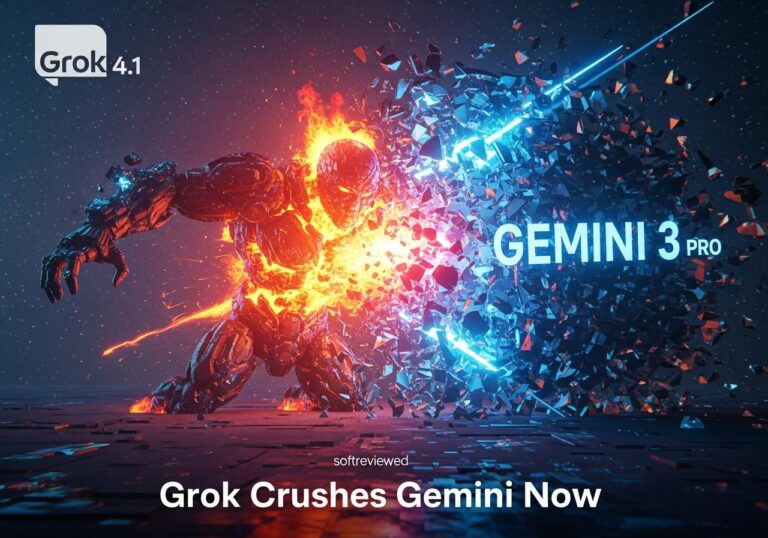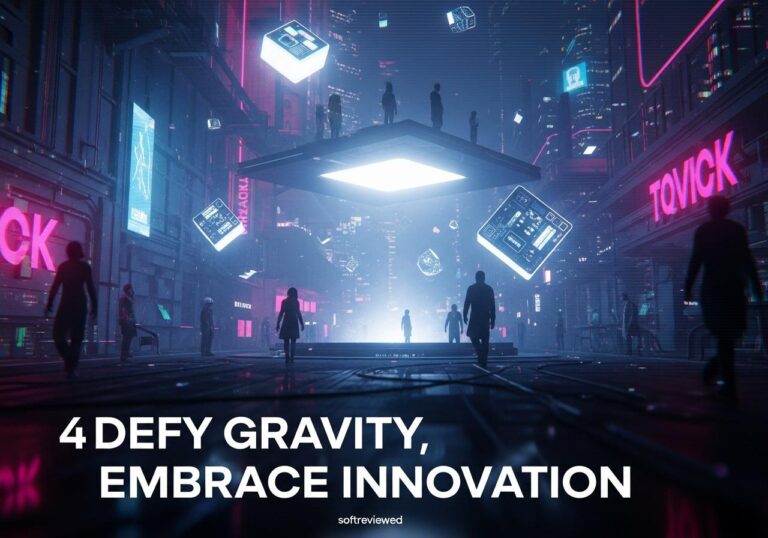🧠 Self-Learning AI Revolution
Discover how AI systems are evolving through autonomous self-training without human intervention or external data.
🔄 Self-Taught AI
Revolutionary AI systems now train with zero external data, inventing their own tasks through self-play logic. This represents a fundamental shift from traditional AI that relies on human-curated datasets.
🏆 Unmatched Performance
These self-taught models consistently outperform both humans and conventional human-curated AI models in complex domains like coding challenges and mathematical problem-solving.
⚙️ Reasoning Loop Cycle
The core of self-learning AI is its three-step reasoning loop:
Generates tasks like coding puzzles or equations
Attempts solutions to self-generated problems
Learns through continuous self-correction
🧩 Advanced Cognitive Skills
Self-taught AI masters sophisticated reasoning methods including deduction (applying rules to reach conclusions), abduction (forming hypotheses from observations), and induction (identifying patterns to form general principles).
🚀 Autonomous Evolution
Unlike traditional AI that plateaus without human intervention, these systems continuously elevate their abilities without human oversight or data curation, creating a truly autonomous learning cycle.
Absolute Zero: The AI That Teaches Itself to Reason
Imagine an AI that can master complex reasoning tasks without ever being spoon-fed data. Sounds like science fiction? Think again. Researchers have developed Absolute Zero (AZR), a groundbreaking approach that allows AI models to learn and improve their reasoning abilities through self-play, completely free from human-labeled data. This could revolutionize how we train AI, paving the way for more autonomous and intelligent systems.
Breaking the Data Dependency: The Rise of Zero-Data Learning

For years, training language models for complex reasoning has relied heavily on large-scale, carefully curated datasets. But this reliance on human-curated data has its limitations. What if there was a better way?
Why Human-Curated Data Might Be Holding AI Back
📌 The scarcity of high-quality, human-produced examples raises concerns about the long-term scalability of relying on human supervision. We're already seeing this challenge in language model pretraining.
📌 In a hypothetical future where AI surpasses human intelligence, tasks provided by humans may offer limited learning potential for a superintelligent system.
📌 Human-created datasets can also introduce biases, limiting the AI's ability to generalize and reason effectively in diverse scenarios.
Enter Absolute Zero: A New Paradigm for AI Reasoning
Enter Absolute Zero, a novel self-play framework that enables large language models (LLMs) to improve zero-shot reasoning without any human-labeled data. By leveraging a cycle of self-refinement, voting, and reward modeling, this approach produces emergent chain-of-thought (CoT) capabilities in open-ended domains like math, logic, and commonsense.
How Does Absolute Zero Actually Work? The Self-Play Secret
Absolute Zero utilizes a clever self-play mechanism where the AI essentially teaches itself. Think of it as an AI student who not only studies but also creates its own homework and grading system. But how does this work in practice?
The Power of Self-Generated Challenges
The AI model generates its own tasks or challenges, pushing its boundaries and exploring new possibilities. This autonomous task creation is crucial because it allows the AI to focus on areas where it needs the most improvement. It's like a student identifying their own weaknesses and designing exercises to overcome them.
Code Execution as the Ultimate Judge: Verifiable Rewards
Instead of relying on human feedback, Absolute Zero uses a code executor to validate proposed tasks and verify answers. This provides a unified source of verifiable reward to guide open-ended yet grounded learning. The code executor acts as an objective judge, providing the AI with clear and consistent feedback. This allows the AI to learn from its mistakes and improve its reasoning abilities over time.
From Novice to Expert: The Learning Cycle in Action
The Absolute Zero Reasoner (AZR) system self-evolves its training curriculum and reasoning ability by using a code executor to both validate proposed code reasoning tasks and verify answers.
Here's a breakdown of the AZR learning cycle:
- Task Proposal: The model generates a reasoning task, such as a coding problem or a math question.
- Task Solving: The model attempts to solve the generated task.
- Code Execution & Verification: A code executor validates the proposed task and verifies the answer.
- Reward Assignment: Based on the verification result, the model receives a reward (positive for a correct solution, negative for an incorrect one).
- Model Update: The model updates its parameters based on the received reward, improving its ability to generate and solve tasks in the future.
👉 ➡️This cycle repeats continuously, allowing the AI to learn and improve its reasoning abilities without any external data.
Absolute Zero vs. The World: Performance and Capabilities
So, how well does Absolute Zero perform compared to traditional AI models? The results are impressive.
Coding and Math Prowess: Where AZR Shines
Despite being trained entirely without external data, AZR achieves overall state-of-the-art performance on coding and mathematical reasoning tasks, outperforming existing zero-setting models that rely on tens of thousands of in-domain human-curated examples. This demonstrates the power of self-play and verifiable rewards in enhancing AI reasoning capabilities.
Scaling Up: Can Absolute Zero Handle Complex Problems?
✅ Researchers have demonstrated that AZR can be effectively applied across different model scales and is compatible with various model classes. This suggests that Absolute Zero is a scalable and versatile approach that can be adapted to a wide range of AI applications.
The Dawn of Autonomous AI: What Absolute Zero Means for the Future
Absolute Zero represents a significant step towards autonomous AI, where AI systems can learn and improve without relying on human intervention. This has profound implications for the future of AI and its role in society.
Towards AI Independence: Reducing Reliance on Human Input
🚀 By reducing the reliance on human-curated data, Absolute Zero paves the way for AI systems that are more independent, adaptable, and scalable. This could lead to breakthroughs in various fields, including:
- Scientific Discovery: AI could autonomously design and conduct experiments, accelerating the pace of scientific discovery.
- Software Development: AI could generate and debug code, automating the software development process.
- Robotics: AI could learn to control robots in complex and unstructured environments, enabling them to perform tasks that are currently impossible.
Ethical Considerations and the Path Forward
⛔️ As with any powerful technology, Absolute Zero raises ethical considerations that need to be addressed.
- Bias Amplification: While Absolute Zero eliminates human bias in data creation, it's crucial to ensure that the code executor itself is free from bias.
- Unintended Consequences: As AI systems become more autonomous, it's important to consider the potential for unintended consequences and to develop safeguards to prevent them.
🤔 Addressing these ethical considerations is crucial to ensure that Absolute Zero and other autonomous AI technologies are used responsibly and for the benefit of humanity.
The Future is Self-Made: Absolute Zero's Legacy
Absolute Zero is more than just a new AI technique; it's a paradigm shift in how we think about training AI. By embracing self-play and verifiable rewards, Absolute Zero unlocks the potential for AI to learn and reason without human intervention. This marks a significant step towards truly autonomous AI, promising a future where AI systems can solve complex problems and drive innovation across various fields. The move towards self-learning systems like AZR represents a crucial step in the long journey to create more adaptable, resilient, and intelligent AI systems.
For more information, check out the research paper on arXiv.







